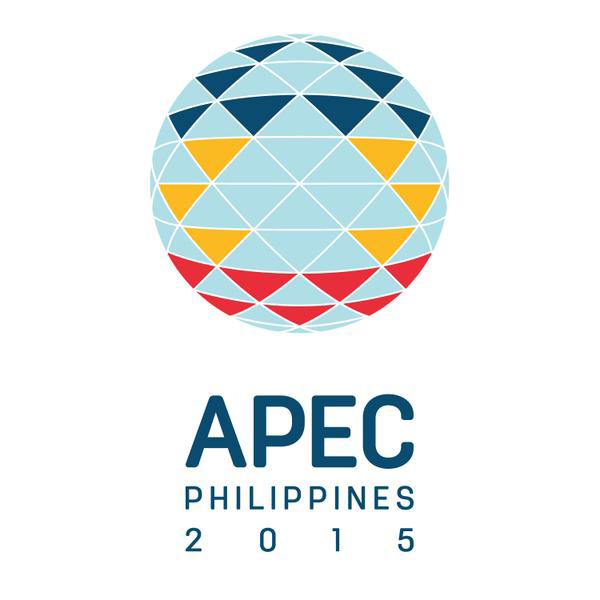 The Philippines sealed agreements, reaffirmed commitments, and explored various areas of cooperation with several countries at the Asia-Pacific Economic Cooperation (APEC) summit this week.
The Philippines sealed agreements, reaffirmed commitments, and explored various areas of cooperation with several countries at the Asia-Pacific Economic Cooperation (APEC) summit this week.
During the APEC Economic Leaders’ Meeting and while accommodating the official state visits of some leaders, Philippine officials were able to strike agreements with counterparts in Chile, Vietnam, Russia, Australia, Japan, Mexico, Papua New Guinea, Canada, South Korea, Colombia, New Zealand, and the United States.
On his first day in Manila on Nov 17, US President Barack Obama visited navy vessel BRP Gregorio del Pilar, acquired by the Philippines from the US through the Excess Defense Articles program, and pledged his nation’s “ironclad” commitment to the Philippines.
He noted that two additional ships will be transferred to the “Philippine Navy, a research vessel to help map its territorial waters, and another U.S. Coast Guard cutter to bolster the Navy’s ability to conduct long-endurance patrols.”
In a statement, the US government said that the Philippines will get the most support from the US among its neighbors– a record $79 million in assistance to bolster maritime security.
An MOU between the Department of Tourism of the Philippines and the Secretariat of Tourism of the United Mexican States on tourism cooperation was signed as well.
Japan, on the other hand, will be lending the Philippines JPY241.991 billion (about P93.46 billion) for the construction a 36.7-kilometer railway connecting Tutuban, Manila and Malolos, Bulacan under the North-South Commuter Railway Project, and P121.9 million for agricultural projects in strife-torn Mindanao.
Japan may also consider a request from the Philippines for big Coast Guard ships to patrol the heavily disputed West Philippine Sea (South China Sea), after the two allies reached a deal on defense equipment and technology.
With Vietnam, the Philippines signed a joint statement to establish a strategic partnership. President Benigno Aquino III said the agreement “will provide further impetus to deepen our cooperation, particularly in the areas of economic, agricultural, defense, and maritime engagement—areas that are truly vital to the strategic interests of both our nations.”
Through the agreement, Aquino said, the Philippines and Vietnam have committed to increase bilateral trade beyond 2016.
In terms of defense relations both countries, claimants to certain portions of the South China Sea, agreed to promote active engagement and cooperation between their defense and military establishments. They also talked about amending the 2010 Philippines-Vietnam Memorandum of Agreement on the Supply of Vietnamese Rice to the Philippines.
The Philippines and Chile signed a letter of intent to enhance trade relations as a way to deepen their current partnership. The Department of Trade and Industry of the Philippines and the General Directorate for International Economic Relations of Chile were both mandated “to continue talks in 2016 and develop a framework for a mutually beneficial trade agreement between our countries.”
The two countries likewise noted the continuing discussion “aimed at strengthening our cooperation against transnational crime, thereby facilitating better coordination between the Philippines’ and Chile’s law enforcement agencies.” Both countries also signed a memorandum of understanding on disaster risk reduction and management to institutionalize cooperation between the two governments in times of natural disasters.
Meanwhile, an agreement to establish a Philippine-Russia Joint Commission on Trade and Economic Cooperation was signed by Trade Secretary Gregory Domingo and Russian Economic Development Minister Alexei Ulyukayev to facilitate bilateral trade and economic cooperation.
The Philippine Drug Enforcement Agency (PDEA) and the Federal Service of Russian Federation for Narcotics Traffic Control also inked a memorandum on cooperation to combat new psychoactive substances.
The Philippines invited Russia to enhance their trade cooperation in information technology-business process management, processed and specialty food, energy and renewables, design-driven products, and aerospace, while Russia asked the Philippines to participate in the transportation expo to be held in Moscow in 2016.
Australia signed a joint declaration with the Philippines on a comprehensive partnership acknowledging the two countries’ long legacy of cooperation that began in 1946.
An MOU to cooperate in technical vocational education and training was forged between the Philippines’ Technical Education and Skills Development Authority and Australia’s Department of Education and Training.
Mexico and the Philippines have forged a deal to avoid double taxation on income and to prevent fiscal evasion. PDEA officials and Mexico Foreign Affairs Secretary Claudia Ruiz Massieu Salinas also signed an MOU aimed at combating illicit traffic in narcotic drugs, psychotropic substances, their analogues, precursor chemicals and essential chemical products, as well as products or preparations containing them.
The Philippines and Papua New Guinea have reaffirmed their commitment to strengthen their cooperation that has been ongoing since 1975, specifically to develop the “areas of policy consultations, health and medical tourism, investment promotion and protection and capacity building.”
Canada, on the other hand, vowed to support the Philippines’ possible accession to the United States-led Trans-Pacific Partnership.
Prime Minister Justin Trudeau was, however, non-committal on calls for Canada to take back 103 container vans of trash illegally shipped to the Philippines.
South Korea expressed support for the Philippines’ military modernization program. It pushed for greater bilateral cooperation in the fields of medicine, medical technology, tele-medicine, public health, and transportation and infrastructure development.
Colombia offered to share its knowledge and experience in anti-insurgency and anti-illegal drugs campaigns. Colombia also discussed with the Philippines about expanding cooperation in energy and natural resources development and reinforcing the fight against transnational crime.
The Philippines and New Zealand expressed a desire to expand cooperation in the areas of electronics and electrical equipment, automotive, information technology, business process management, engineering services, infrastructure development, and public-private partnership projects.
Against terrorism
At the end of the summit, the APEC leaders also issued a joint statement which, among others, condemned terrorism.
“Under the shadow cast by the terrorist attacks in Paris, Beirut, and against Russian aircraft over the Sinai, and elsewhere, we strongly condemn all acts, methods, and practices of terrorism in all their forms and manifestations,” the declaration said.
“We will not allow terrorism to threaten the fundamental values that underpin our free and open economies. Economic growth, prosperity, and opportunity are among the most powerful tools to address the root causes of terrorism and radicalisation.”
“We stress the urgent need for increased international cooperation and solidarity in the fight against terrorism.” – Roumina Pablo





